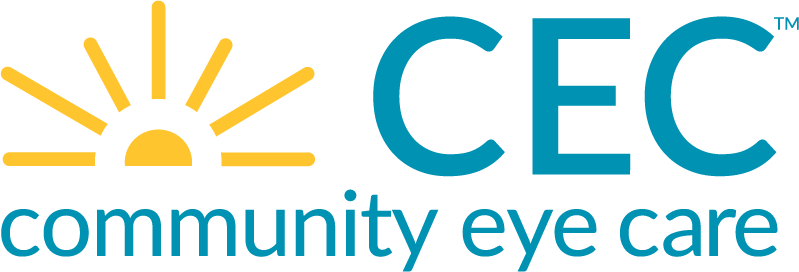
Are you feeling stressed out lately? Have you noticed any changes in your vision or eye discomfort? Stress isn't just a mental burden; it can also take a toll on your physical health, including your eyesight. Let’s explore the often-overlooked connection between stress levels and eye health and effective strategies to find relief.
The Stress and Eye Health Connection
Stress is a common phenomenon in today's fast-paced world. It can stem from various sources, such as work pressure, relationship issues, financial concerns, or even health worries. When we experience stress, our bodies go into a state of heightened alertness, triggering a cascade of physiological responses. While the immediate effects of stress are well-known, its impact on eye health is often underestimated.
Understanding Stress: What Causes It?
Before we delve into the relationship between stress and eye health, let's take a moment to understand what stress is and what causes it. Stress is our body's natural response to demands or threats, whether they're real or perceived. It activates the "fight or flight" response, releasing hormones like adrenaline and cortisol to prepare us to deal with the situation at hand. While short-term stress can be beneficial, chronic stress can have detrimental effects on both our physical and mental well-being.
Various factors can contribute to stress, including work pressure, deadlines, relationship conflicts, financial worries, health problems, and even major life changes like moving to a new city or starting a new job. Identifying the sources of stress in your life is the first step towards managing it effectively.
Symptoms of Stress Impacting the Eyes: What to Watch Out For
How does stress impact your eye health? Our eyes are incredibly complex organs, and they can reflect the state of our overall health, including our stress levels. Here are some common eye symptoms that may indicate heightened stress:
- Eye Strain: One of the most prevalent symptoms of stress-related eye issues is eye strain. When we're stressed, we tend to tense up our facial muscles, including those around the eyes, leading to discomfort, soreness, and fatigue. Prolonged screen time, such as staring at computers or smartphones for extended periods, can exacerbate this symptom.
- Dry Eyes: Stress can also affect the quality and quantity of tears produced by our eyes, leading to dryness, itchiness, and irritation. This can be particularly bothersome for individuals who spend long hours in air-conditioned environments or those who frequently travel by plane.
- Blurred Vision: Have you ever noticed your vision becoming blurry during periods of intense stress? Blurred vision is another common symptom that can occur when the eye muscles become tense due to stress. While temporary blurriness may resolve on its own, persistent or worsening symptoms warrant attention from an eye care professional.
- Eye Twitching: Stress can cause involuntary muscle contractions, including twitching of the eyelids or eye muscles. Although usually harmless, frequent eye twitching can be annoying and may indicate underlying stress or fatigue.
- Light Sensitivity: Increased sensitivity to light, known as photophobia, is another potential symptom of stress-related eye issues. Bright lights or glare may become more bothersome during times of heightened stress, making it challenging to focus or concentrate.
- Under-Eye Puffiness: Stress can lead to fluid retention and inflammation, resulting in under-eye puffiness or swelling. This can give the appearance of tired, puffy eyes, even after a full night's sleep.
- Ocular Migraines: For some individuals, stress can trigger ocular migraines, which are characterized by visual disturbances such as flashing lights, blind spots, or zigzag lines. These migraines can be accompanied by or precede a headache, and they typically resolve on their own within a short period. However, if you experience frequent or severe ocular migraines, it's essential to consult a healthcare professional for proper evaluation and management.
Finding Relief: Strategies for Managing Stress
Now that we've explored the symptoms of stress impacting the eyes, you might be wondering what you can do to find relief. The good news is that there are plenty of effective strategies for managing stress and promoting optimal eye health:
- Practice Stress Management Techniques: Incorporate stress-reduction techniques into your daily routine, such as deep breathing exercises, meditation, yoga, or progressive muscle relaxation. These practices can help calm your mind and body, reducing the physiological effects of stress.
- Take Regular Breaks from Screens: If you spend a significant amount of time in front of digital screens, make sure to take regular breaks to rest your eyes. Follow the 20-20-20 rule: every 20 minutes, look away from your screen and focus on something 20 feet away for at least 20 seconds.
- Prioritize Sleep: Adequate sleep is essential for both stress management and eye health. Aim for 7-9 hours of quality sleep each night to allow your body and mind to recharge fully.
- Stay Hydrated: Drink plenty of water throughout the day to keep your body and eyes hydrated. Proper hydration helps maintain the moisture balance in your eyes, reducing the risk of dryness and irritation.
- Consult an Eye Care Professional: If you're experiencing persistent or severe eye symptoms related to stress, don't hesitate to seek guidance from an eye care professional. They can evaluate your eye health, provide personalized recommendations, and address any underlying issues.
The connection between stress levels and eye health is undeniable. By being mindful of the symptoms of stress manifested through the eyes and adopting healthy habits for stress relief, you can safeguard your vision and overall well-being. So, take a proactive approach to managing stress, and remember to give your eyes the care and attention they deserve. Your future self will thank you for it. Schedule your yearly eye exam today!
Information received through CEC vision care channels is for informational purposes only and does not constitute medical advice, medical recommendations, diagnosis, or treatment. Always seek the advice of your eye doctor, physician, or another qualified health provider with any questions you may have regarding a medical condition.
CEC is a wholly-owned subsidiary of VSP Vision.
Sources: American Optometric Association (AOA), American Academy of Ophthalmology (AAO), The Vision Council (TVC), National Eye Institute (NEI), and Centers for Disease Control and Prevention (CDC).
Back to All

